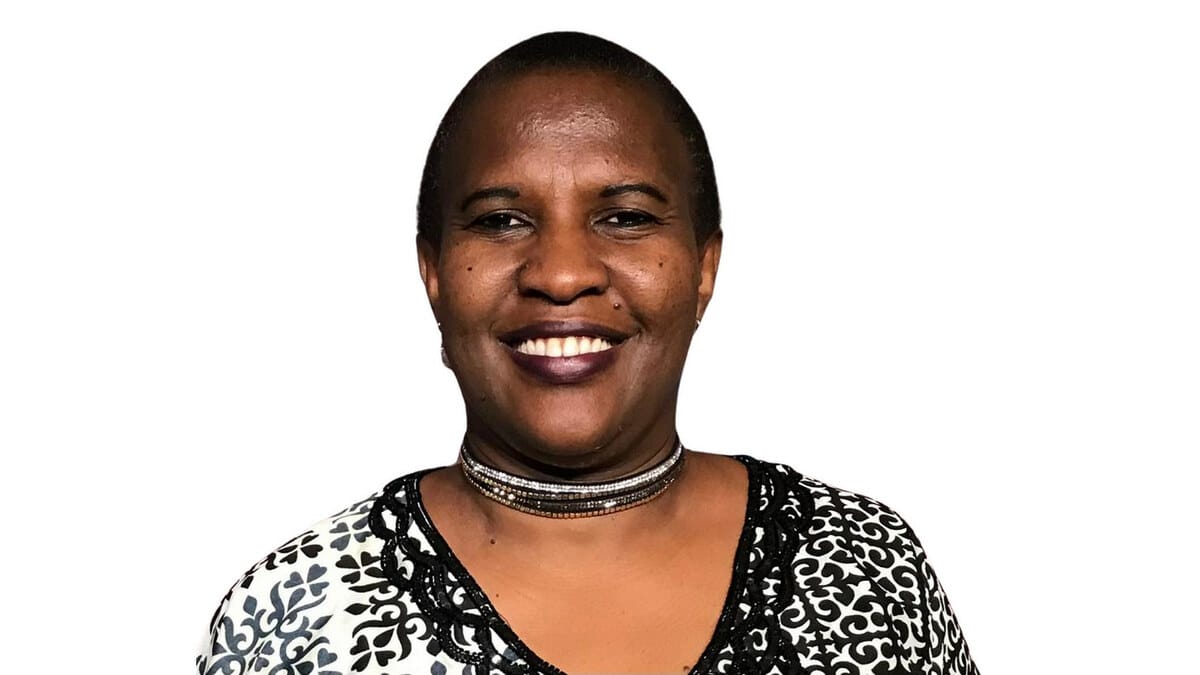
By Alice Ruhweza, Regional Director for Africa, WWF International
It is crunch time for biodiversity. The much-anticipated UN Biodiversity Conference COP 15 in Montreal, Canada, is around the corner later this year. COVID-19 played its part in serial postponements, deflating the 2021 'Super Year for Nature' bubble. Nonetheless, the vision of a nature-positive future lives on. The road to Montreal, however, remains rocky. The hope is that obstacles to progress can be removed in critical negotiations in Nairobi this week.
COP 15 is a once-in-a-decade opportunity for world leaders to achieve not only a "Paris"-style framework for the protection of nature, but to secure the achievement of the UN’s Sustainable Development Goals (SDGs). With over one million species already on the verge of extinction, alarmingly high deforestation rates, and overfishing causing havoc for marine life, the science is clear that the world is running out of time to take the necessary action to protect the planet's most important ecosystems.
Nairobi has become the gateway to Montreal. The aim is to unite the world behind a common goal of reversing biodiversity loss and achieving a nature-positive world by 2030. The Nairobi talks are expected to see a renewed push for the UN plan to set a goal of protecting 30% of land and water globally by 2030. WWF fully supports such a goal that includes the rights and roles of Indigenous Peoples and Local Communities.
Negotiators will meet in the Kenyan capital for what is hoped will be the fourth and final negotiations before the COP 15. At stake is the removal of obstacles to achieving a post-2020 Global Biodiversity Framework (GBF), aimed at tackling the world's devastating loss of species.
For Africa, climate finance and the transfer of technology are critical to meaningful progress towards a deal in Montreal
The Nairobi talks from June 21 to June 26 follow a long and winding road across the world. Previous talks in Geneva failed to make significant headway. Now Nairobi is in the spotlight. Here progress will need to be made on biodiversity finance, equitable benefit sharing, targets on sustainable consumption and production, as well as on how to ensure the framework’s implementation.
As always, the devil lies in the detail. The Open-Ended Working Group (OEWG) is in charge of pushing forward with preparations for the post-2020 global biodiversity framework. This approach process will conclude with the adoption of a post-2020 global biodiversity framework during the UN Biodiversity COP15 conference.
These ambitious global goals are both necessary and important in the face of historic biodiversity loss. The world leaders' adoption of the biodiversity framework at COP15 would be momentous if it were part of a broader package of pledges that would spur urgent action on the ground. Over the next 10 years, the post-2020 Global Biodiversity Framework will define ambitions and actions that will have an impact on nature. This means that decisions made at COP15 have the ability to turn the tide on environmental degradation and climate change, allowing us to transition to a planet that can sustain generations for years to come.
In the next 30 years or by 2050, Africa is expected to be among the continents with the greatest habitat loss, according to the latest Intergovernmental Platform on Biodiversity and Ecosystem Services (IPBES) Global Assessment Report.
If current trends continue, the continent might lose more than half of its bird and mammal species by 2100, as well as suffering a 20-30% drop in the productivity of Africa's lakes and a major loss of African plant species. The stakes for Africa are high.
Africa is undergoing rapid transformation in terms of its natural resources, most significantly through population growth and agricultural, land and water use, infrastructure development, and the extractives sector.
The most recent African regional assessment of the state of the continent’s biodiversity and ecosystem services spells out that biodiversity and nature’s contributions to people in Africa are economically, socially, and culturally essential in providing the continent’s needs. These include food, water, energy, health, and secure livelihoods. They represent a strategic asset for sustainable development.
In order to address the biodiversity and climate crises, as well as achieve sustainable development and poverty eradication, all recent UN environmental assessments, including those from IPBES and the UN Environment's Sixth Global Environmental Outlook, emphasize the need for "transformative" policy change.
Key amongst Africa’s priorities are ensuring Africa has the means to turn a deal into reality on the ground. These priorities include biodiversity financing, capacity building and appropriate transfer of technology from developed countries, fair and equitable sharing of the benefits from the use of digital sequence information and the sustainable use of biodiversity resources.
Africa, jointly with other regions of the world, has also made the call for a significant increase in biodiversity financing from developed countries to at least $100 billion a year with this growing seven fold to $700 billion by 2030.
Africa is also looking for capacity-building. Due to inequalities between north and south, Africa is asking for effective and strategic capacity building for scientific and technical cooperation and technology transfer.
Nairobi is the gateway to Montreal.
It is time to clear the road. It is time to reverse nature loss and achieve a nature-positive future for Africa and the world.
The COP15 UN biodiversity conference will now take place 5-17 December in Montreal, Canada and not Kunming, China as earlier anticipated.